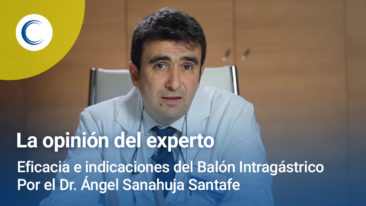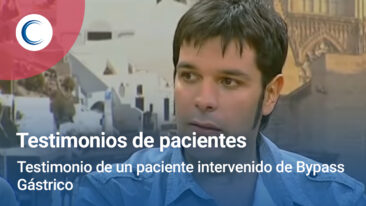Videos
Discover the audiovisual content that we offer you in Clinicas Obésitas.
Adult diabetes is one of the most serious problems associated with obesity and overweight. In fact, it causes progressive and rapid deterioration of the organism, often even when correctly treated with antidiabetics and insulin.
There are two different types of diabetics:
When diabetes is associated to a very big obesity, patients that weigh 50 or 60 kg more, let’s say that the focus of treatment is the obesity itself because, once that obesity is treated, diabetes is cured spontaneously or associated to weight loss.
However, in other patients, even if they are not very overweight, weighing 20 or 25 kg, they already suffer from diabetes and even, in many cases, need insulin, and they notice a progressive worsening of this diabetes over the years. The latter case are those who would be candidates for diabetes surgery.
Diabetes operations are based on obesity operations and are really effective. They are able to treat and slow down the progression of diabetes in up to 85% of cases and clearly improve it in up to 95% of cases.
They are so effective that the patient usually stops needing insulin 5 to 7 days after the operation.
The most commonly used surgical techniques for the treatment of diabetes are the metabolic bypass and, more recently, the gastric tube with bileal duodenum bypass.
Both operations are performed by laparoscopy and only require a 48-hour stay in the hospital and 7 days of recovery to return to a normal life.
Before the operation, it is important to carry out a detailed study of the patient and his or her diabetes in order to know as much as possible about the extent to which the pancreas will resist the operation we perform.
In fact, thanks to the studies and preparation that is done, the patient comes to the operation with lower insulin needs, lower blood sugar and improved glycated hemoglobin.
In summary, this operation is indicated in diabetic patients, whose diabetes has appeared in adulthood, who have a BMI greater than 30, and who have had a good pancreatic response during preparation for the operation.
You can find more detailed information about this technique on our website.
Thank you.
Expert Opinion: Diabetes Operation
Metabolic Diabetes Surgery, Expert OpinionIn this video Dr. Ferrer talks about what Diabetes Surgery is all about. He answers the following questions: How should the operation for diabetes be, Effectiveness of the diabetes operation, When should this surgery be indicated, etc.
Adult diabetes is one of the most serious problems associated with obesity and overweight. In fact, it causes progressive and rapid deterioration of the organism, often even when correctly treated with antidiabetics and insulin.
There are two different types of diabetics:
When diabetes is associated to a very big obesity, patients that weigh 50 or 60 kg more, let’s say that the focus of treatment is the obesity itself because, once that obesity is treated, diabetes is cured spontaneously or associated to weight loss.
However, in other patients, even if they are not very overweight, weighing 20 or 25 kg, they already suffer from diabetes and even, in many cases, need insulin, and they notice a progressive worsening of this diabetes over the years. The latter case are those who would be candidates for diabetes surgery.
Diabetes operations are based on obesity operations and are really effective. They are able to treat and slow down the progression of diabetes in up to 85% of cases and clearly improve it in up to 95% of cases.
They are so effective that the patient usually stops needing insulin 5 to 7 days after the operation.
The most commonly used surgical techniques for the treatment of diabetes are the metabolic bypass and, more recently, the gastric tube with bileal duodenum bypass.
Both operations are performed by laparoscopy and only require a 48-hour stay in the hospital and 7 days of recovery to return to a normal life.
Before the operation, it is important to carry out a detailed study of the patient and his or her diabetes in order to know as much as possible about the extent to which the pancreas will resist the operation we perform.
In fact, thanks to the studies and preparation that is done, the patient comes to the operation with lower insulin needs, lower blood sugar and improved glycated hemoglobin.
In summary, this operation is indicated in diabetic patients, whose diabetes has appeared in adulthood, who have a BMI greater than 30, and who have had a good pancreatic response during preparation for the operation.
You can find more detailed information about this technique on our website.
Thank you.

























